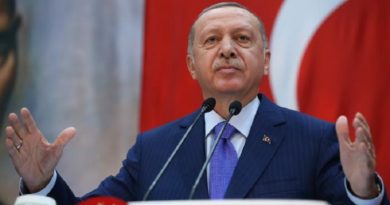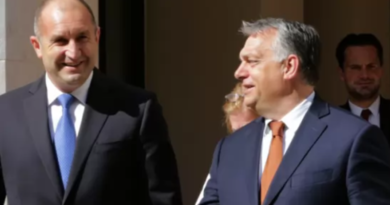The Trump Empire 2.0: Building a Business-Political Dynasty Beyond the Presidency
How political-business networks in Eastern Europe, cryptocurrency ventures, and the public-private dimensions of “America First” are shaping Trump’s long-term business vision
While Donald Trump struggles to reassert his vision for America and the world, the Trump Organization is already building a long-term global business network designed to outlive his presidency. “Trump’s Business Vision for 2025” — the theme of a series of conferences across Eastern Europe — outlines a plan to intertwine real estate, finance, technology, and geopolitics under a populist, nationalist brand.
At the heart of this strategy lies a push into Eastern Europe, leveraging political allies, regional economic shifts, and the crypto boom to expand and consolidate Trump’s global private empire. The result is a hybrid business-political ecosystem, ready to survive election cycles and reposition the Trump brand globally.
Strategic Entry into Eastern Europe: A New Horizon for Trump’s Influence
In April 2025, Donald Trump Jr. leads a “Trump Business Vision for 2025” tour of Hungary, Serbia, Bulgaria, and Romania, aimed at reorienting Eastern Europe’s economic ties. Promoting partnerships with the U.S. over China’s Belt and Road investments, Trump Jr. identifies China—not Russia—as the primary threat, encouraging local elites to pivot toward American-backed projects.
Relying on personal ties with leaders like Viktor Orbán and Aleksandar Vučić, the Trump Organization presents itself as an alternative investment channel linked to a potential Trump presidency and a broader anti-globalist, anti-EU alliance. These visits position the Trump brand not only as a commercial partner but as a symbol of a new political and economic order based on sovereignty, nationalism, and alignment with Washington’s protectionist agenda.
Political and Economic Levers: Tariffs, Trade Wars, and Business Expansion
President Trump’s aggressive economic policies—including high tariffs on Canada, Mexico, and China—are pressuring Eastern European economies to seek alternative markets. The Trump Organization is using this pressure to attract local businesses into its expanding ecosystem: real estate development, hospitality, technology, and especially crypto ventures.
Support Independent Analysis
Help us keep delivering free, unbiased, and in-depth insights by supporting our work. Your donation ensures we stay independent, transparent, and accessible to all. Join us in preserving thoughtful analysis—donate today!
In Bulgaria, for instance, Trump-aligned cooperation with fintech players like Nexo signals a growing interest in digital finance and blockchain, with special deals targeting wealthy Bulgarian investors in exchange for privileged membership in an emerging “oligarchs’ club” – the Executive Branch.
Romania’s political turbulence during its presidential elections created further openings, with Trump Jr.’s visit strategically timed to exploit the instability for real estate and financial deals.
Cryptocurrencies and the Trump Organization’s 2025 Strategy: A Parallel Financial System
At the heart of the Trump Organization’s 2025 strategy is the fusion of traditional business models with an ambitious cryptocurrency program, creating exceptional opportunities to translate political influence into direct financial gains.
Through ventures such as World Liberty Financial (WLF) and high-profile meme coins like $TRUMP and $MELANIA, the Trump family has merged speculative finance, political fundraising, and strategic investment into a single ecosystem. They profit twice: first from the surge in the value of their crypto tokens, and second by brokering transactions—facilitated by platforms like Nexo. According to Coinbase, as cited by the BBC, the value of $TRUMP jumped by more than 70% following the announcement of a fundraising dinner—remarkable $ 100+ million returns for a sitting president.
In Eastern Europe, WLF’s initiatives carry a pronounced geopolitical edge, aiming to counter Chinese fintech influence by promoting U.S.-backed financial protections. In Trump’s vision, the United States is positioned to become a global crypto hub—addressing a key priority: alleviating America’s external debt while creating a new class of crypto oligarchs poised to profit well beyond 2028. Trump Jr. is actively inviting Eastern European oligarchs to join this emerging profit-sharing network.
However, these ventures are not without controversy. Allegations of pump-and-dump schemes, conflicts of interest, and looming regulatory risks cloud the future of Trump’s crypto empire. Crucially, the SEC, under pressure from the new administration, has categorized meme coins as collectibles rather than securities, thereby exempting Trump-linked tokens from stricter investor protections and shielding them from immediate regulatory action.
Building the Inner Circle: The Business Elite Trump Attracts
The Trump Organization’s Eastern European strategy targets a select network of influential players:
- Political Oligarchs and Politically Connected Entrepreneurs: Business figures aligned with populist and nationalist governments who can fast-track real estate, infrastructure, and strategic investment projects.
- Technology and Fintech Innovators: Especially leaders in blockchain and digital finance capable of integrating World Liberty Financial (WLF) crypto products into emerging local markets.
- Real Estate Developers: Builders ready to use the Trump brand, using its political prestige as leverage to advance projects in volatile or transitional environments.
- Business Leaders Opposed to China: Investors who prioritize U.S. alliances over Chinese partnerships, forming the backbone of Trump’s broader strategy of economic decoupling.
- Conservative Global Investors: Wealthy individuals seeking safe havens for their assets, attracted to politically protected U.S. investments as a shield against global financial instability.
If the leaked information about Trump’s special representative Steve Witkoff’s talks with Putin is accurate — namely, that they involve brokering Russian energy interests through Nord Stream and TurkStream — this would directly contradict the interests of American natural gas and energy exporters. It is therefore reasonable to conclude that the Trump and Witkoff families’ interests take precedence over those of American business.
Challenges and Risks: Navigating a Fragmented Geopolitical Landscape
Despite its aggressive push, Trump’s Eastern European strategy faces serious obstacles. Nations like Hungary and Serbia remain deeply entrenched in Chinese investment networks—through Belt and Road rail lines, BYD EV factories, and fintech projects—offering strong competition.
EU regulations on cryptocurrencies and increasing concerns about Trump’s transactional and tariffs’ diplomacy further complicate the landscape. Trump Jr.’s attempts to pull Vučić and Orbán away from China are likely to mirror President Trump’s failed efforts to split Russia and China.
What Is Specific to Bulgaria?
Bulgaria, largely due to Nexo’s ambitions to reenter the U.S. market, holds a secure and strategic place in Trump Jr.’s Eastern European agenda:
- Fintech and AI leadership: Nexo’s success underscores Bulgaria’s potential in fintech and AI, positioning the country as an attractive target for technology-driven initiatives. However, not all Bulgarian-owned ventures are expected to benefit equally from Trump-aligned favoritism.
- Energy transit hub: Bulgaria’s role in projects like Turk Stream and the Vertical Gas Corridor opens new opportunities for brokering Russian energy exports to the EU.
- Arms sales and nuclear reactors: In addition, potential U.S. nuclear reactor sales and expanded arms purchases offer strategic avenues for deepening bilateral ties. Although these transactions remain largely state-to-state, they appear crucial at a time when the Trump family faces growing domestic criticism over alleged abuses of power, offering a form of “offset” through formalized deals.
- Political and corruption dynamics: Bulgaria’s sanctioned elites, particularly Delyan Peevski and Vladislav Goranov, are actively seeking relief from U.S. sanctions, presenting unparalleled opportunities for “transactional” partnerships leveraging public funds—a dynamic far less pronounced in Hungary or Serbia.
- EU alignment: Bulgaria’s pro-European Union stance and its ambition to join the eurozone by 2026 provide a more stable political environment for Trump-linked business operations, free from the China-related geopolitical tensions that complicate similar efforts in Hungary and Serbia.
The Borisov-Trump Jr. Meeting: A Window into Bulgaria’s Political Fault Lines
The recent ‘secret’ meeting between Boyko Borisov and Donald Trump Jr. exposes deep fractures within Bulgarian politics. Borisov’s desperate lobbying on behalf of Delyan Peevski — one of the most discredited figures both at home and abroad — brings him little tangible political benefit domestically. Yet it remains essential for preserving his and GERB’s grip on Bulgaria’s political landscape.
Peevski, intent on consolidating and expanding his political and business power, urgently needs the U.S. Magnitsky sanctions lifted to formalize his succession of Borisov as the country’s chief power broker.
Meanwhile, the Trump brand continues to deteriorate, particularly in Europe, adding further uncertainty to the potential returns from Borisov’s overtures.
The secrecy surrounding the meeting underscores the sensitivity of Borisov’s mission and explains why he patiently waited to meet Trump Jr. at his hotel, away from public view. According to media and local sources, the core of the offer appears to involve the removal of U.S. sanctions on Delyan Peevski and Vladislav Goranov in exchange for new investments tied to the Trump crypto network, political loyalty to Trump’s broader agenda, and preferential access to Bulgarian projects funded by private capital.
Borisov’s premature claim that Peevski and Goranov would soon be removed from the Magnitsky sanctions list likely underestimates Trump’s strategic interest in preserving this critical leverage over Bulgarian politics. Rather than a quick resolution, the situation seems headed toward a prolonged and costly period of “lobbying,” with Trump positioned to maximize both political and financial returns.
Plan for Empire After the Presidency
Trump Jr.’s Eastern European tour aimed to forge a bloc of pro-Trump EU nations capable of restraining Brussels and countering China’s economic ascent, blending state-level cooperation with private Trump Organization ventures. This emerging global network extends beyond Trump’s immediate family to include allies such as the Witkoff family, whose next generation now plays a role in brokering deals between Russian energy interests and Eastern European — including Bulgarian — opportunities.
Yet the risks remain acute: Trump’s tariffs and volatile trade policies inject uncertainty into potential partnerships, while Trump-linked crypto projects expose investors to unpredictable financial and reputational hazards.
“Trump’s Business Vision for 2025” is more than a branding exercise; it is an ambitious attempt to fuse politics, business, and speculative finance into a new global empire designed to outlast the Trump presidency. Eastern Europe serves as the first major test, with real estate, fintech, crypto, and the potential brokerage of Russian energy interests forming the pillars of the next Trump dynasty.
Success, however, will depend on navigating Europe’s anti-Trump sentiment, surging populism, growing competition with China, and the volatility of crypto markets. Whether this strategy culminates in a lasting Trump empire—or collapses under its own contradictions—remains one of the defining geopolitical stories of the decade.
Ilian Vassilev




